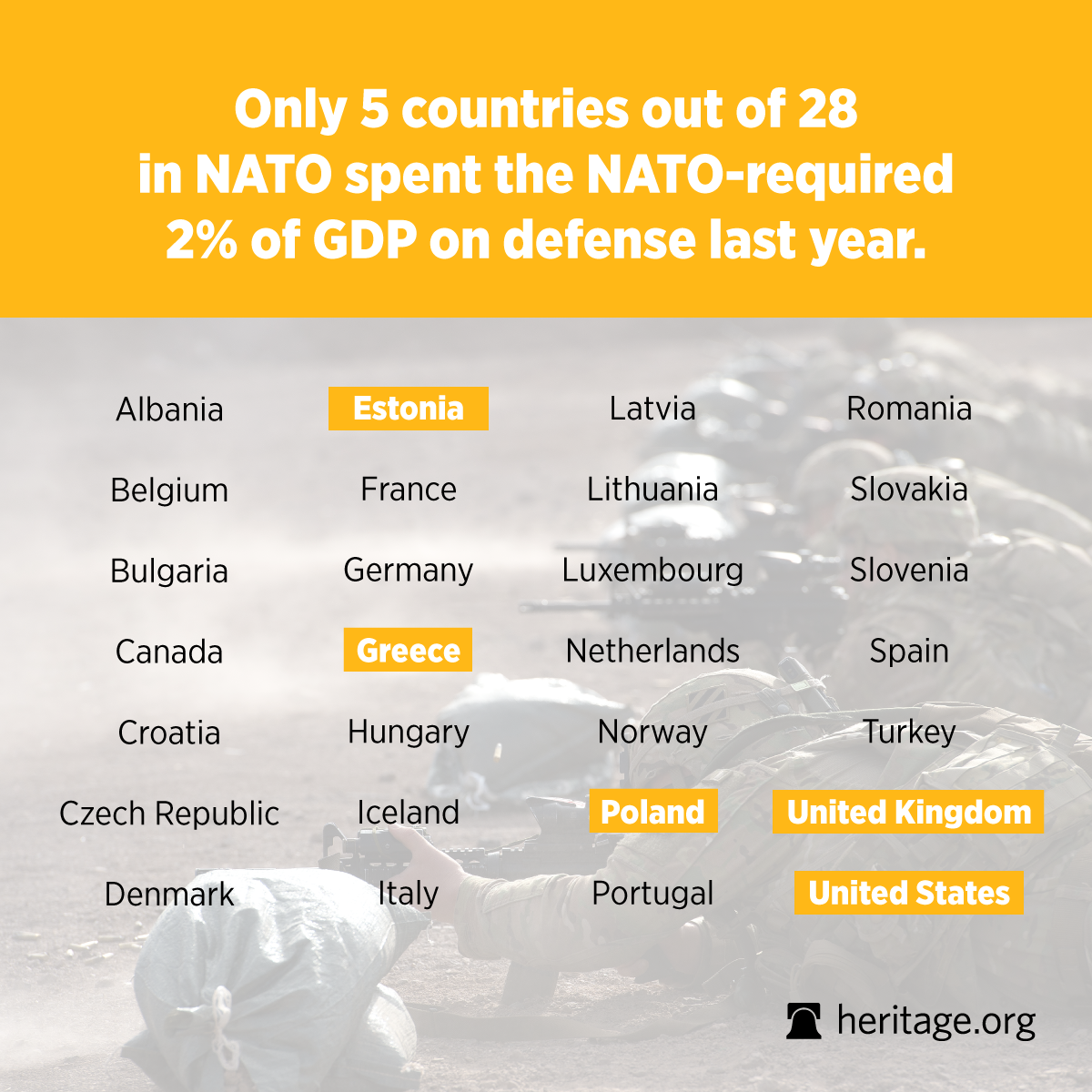You’d Better Believe NATO Still Matters Today
Luke Coffey / James Carafano /
Recently there have been some who have questioned NATO’s importance in the 21st century.
Europe is currently experiencing a belligerent and aggressive Russia with old-school 18th-century imperial ambitions.
The answer is—very important.
Europe is currently experiencing a belligerent and aggressive Russia with old-school 18th-century imperial ambitions. While Russia’s actions in Ukraine may seem unimportant to some in Western Europe, there are those in NATO’s east that view them as a very legitimate security concern.
An Important History…That Still Matters
The North Atlantic Treaty Organization was founded in 1949 with the mission to protect the territorial integrity of its members and—if required—defeat the Soviet Union. While NATO’s members are no longer worried about the spread of communism, many current NATO members are certainly worried about protecting their territory from Russian expansion. Several were once under the iron fist of the Soviet Union after World War II and therefore view Russia’s bellicose behavior today as an existential threat.
Russia has used military force to change its border in Europe—something that has not happened since World War II. Since 2008, it has invaded two of its neighbors, and it occupies thousands of square miles of territory in Ukraine and Georgia. It is rearming its military to the teeth, expanding in the Arctic, and threatening the Baltic States.
The United States needs a NATO that can deter Russia and defend the territorial integrity of our European allies. Everything else NATO might do is secondary to the number-one mission of territorial defense. The cornerstone of the NATO alliance is in its founding treaty, which states (in Article 5) that an attack on one is an attack on all.
If the U.S. were to walk away from this commitment, there would be serious consequences.
Russia would likely continue to degreed its neighbors’ borders over central and eastern Europe, and within a generation, the U.S. could again be forced into sending hundreds of thousands of troops back across the Atlantic to fight a war in Europe.
This is not the legacy we want to pass down to the next generation.
NATO’s role in the 21st century needs to be back to the basics, with territorial defense as its primary goal. NATO does not have to be everywhere in the world doing everything all the time. Rather, it needs to be capable of defending its members’ territorial integrity. While many NATO members are confronting terrorist groups such as the Islamic State, NATO is not the organization to counter Islamist terrorism. This is because, as an institution, it is designed to counter territorial threats.
NATOs European Budget Problem
In order to accomplish this goal, it is important for the U.S. to push other NATO members to increase defense funding—rather than cutting. Only five countries out of 28 in NATO (U.S., U.K., Estonia, Greece, and Poland) spent the NATO-required 2 percent of GDP on defense last year.
I can promise that it will be far easier deterring Russian aggression from Eastern Europe than it will be to liberate Eastern Europe. If the U.S. wants to maintain order and stability in Europe, then a robust U.S. force presence and a strong NATO are the best way.

